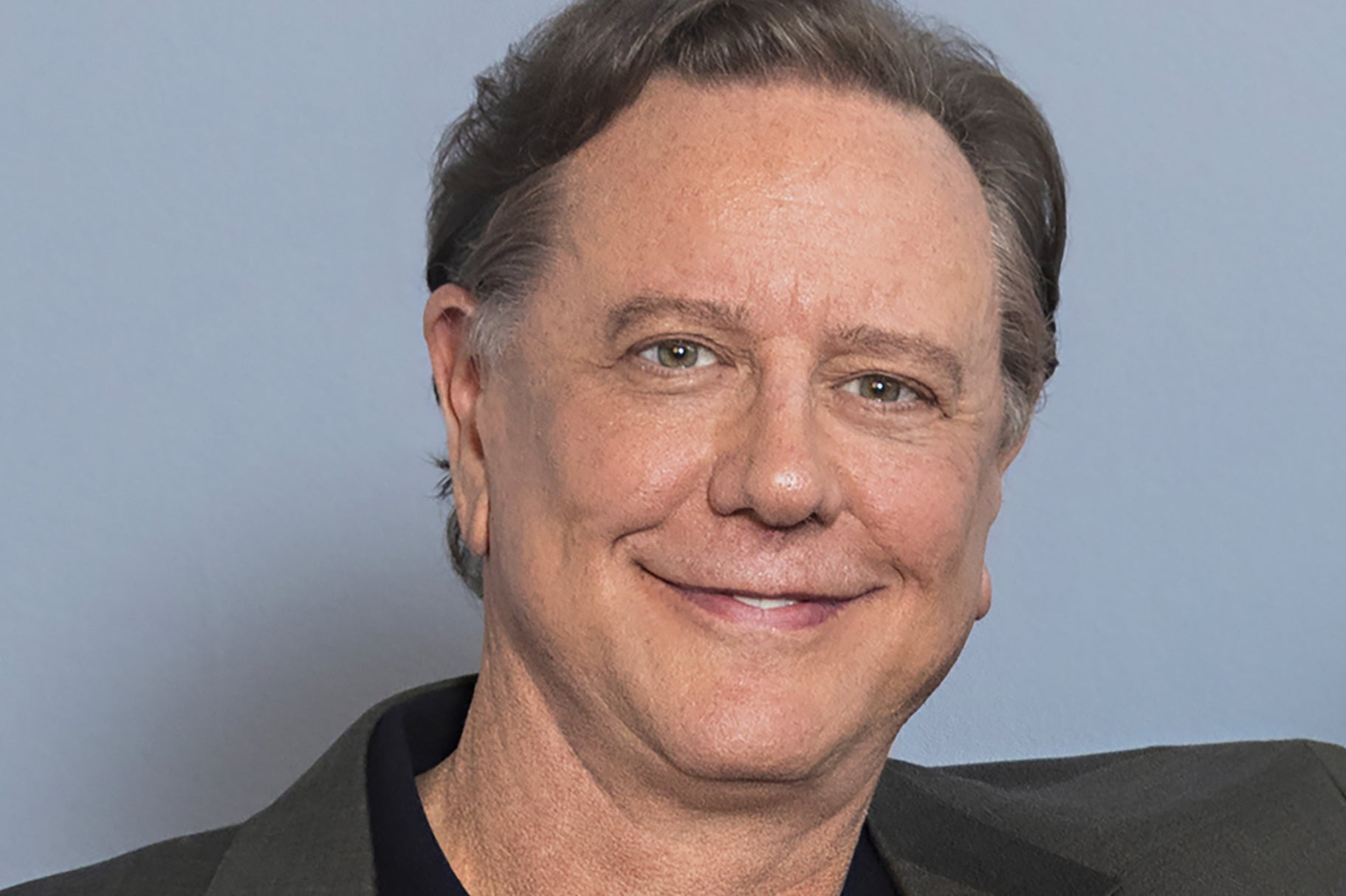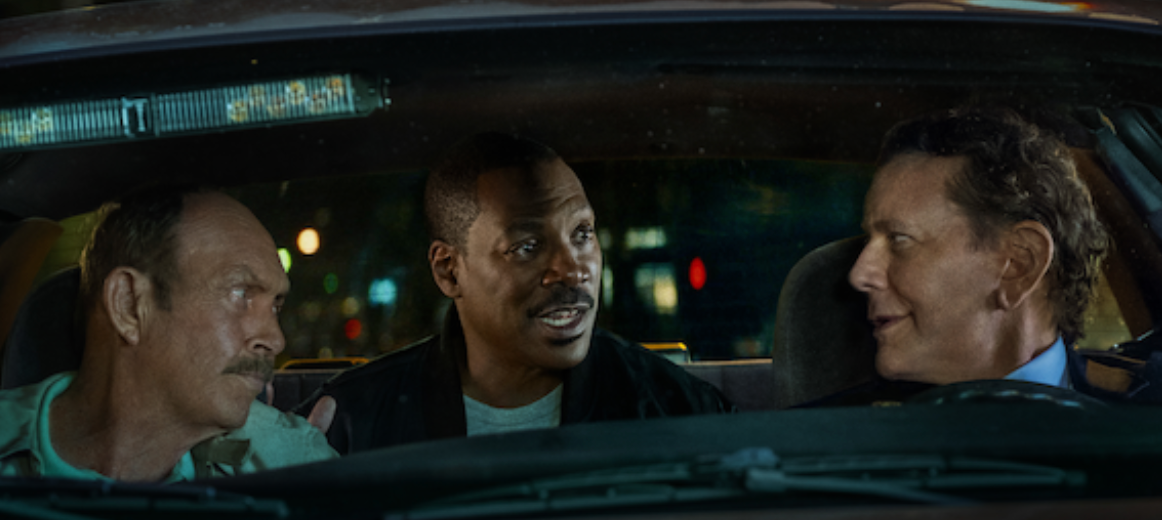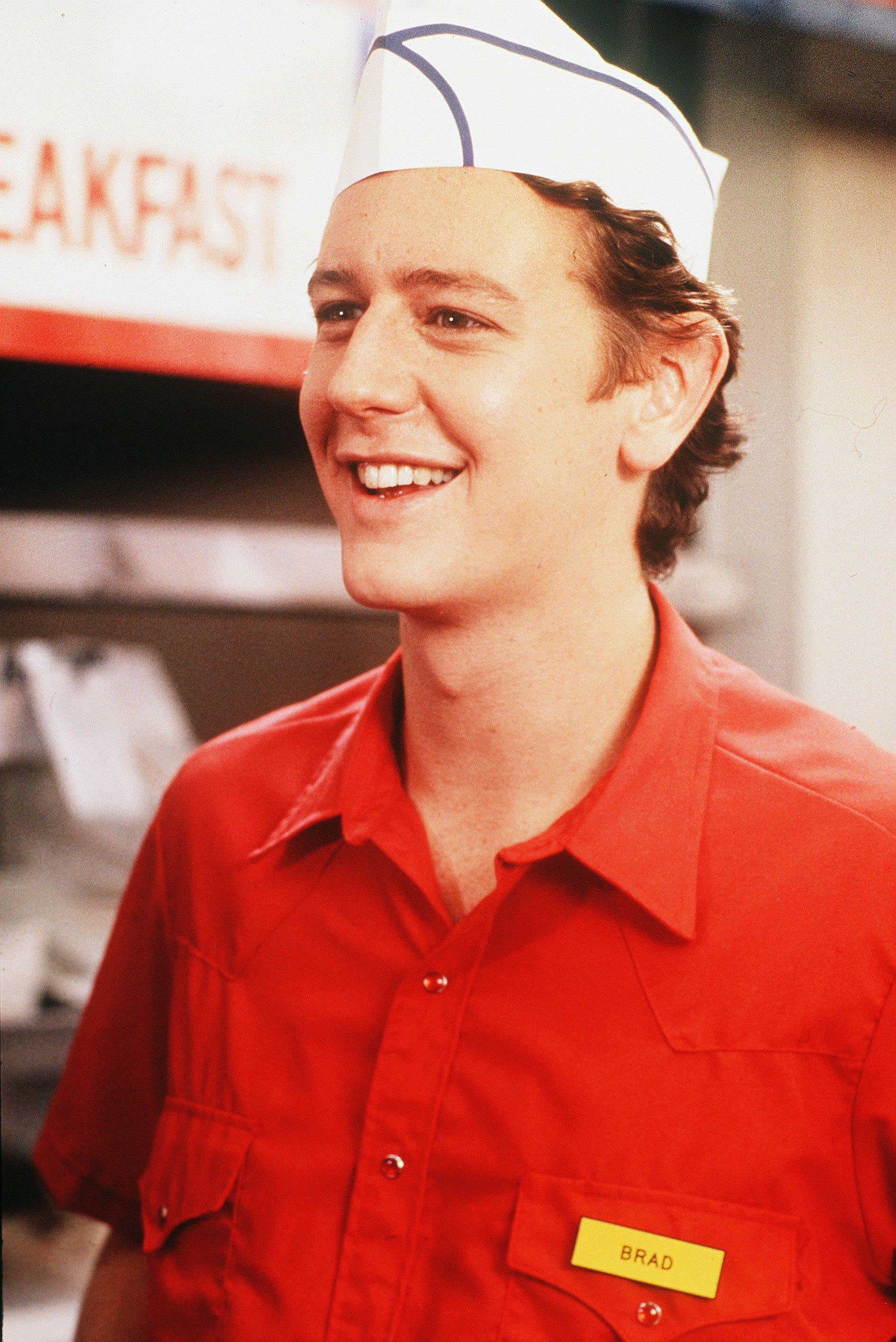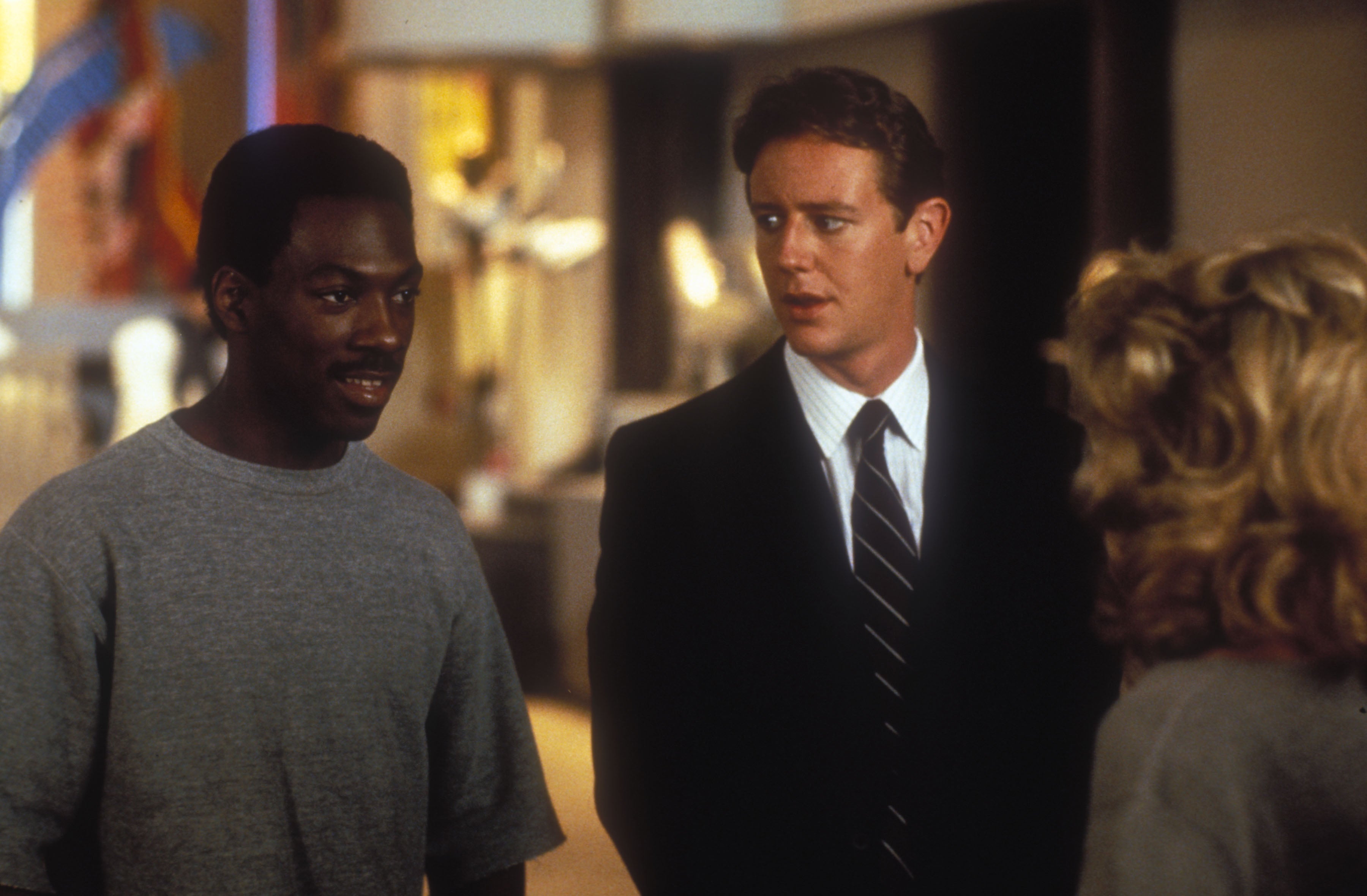Judge Reinhold on Beverly Hills Cop: Axel F: ‘I’m proud to play a cop’
The actor returns as Billy Rosewood for the fourth instalment of the action comedy. He talks to Kate Solomon about the fight against greed, instant stardom and espressos with lemon as she assesses the highs and lows of his career

Your support helps us to tell the story
From reproductive rights to climate change to Big Tech, The Independent is on the ground when the story is developing. Whether it's investigating the financials of Elon Musk's pro-Trump PAC or producing our latest documentary, 'The A Word', which shines a light on the American women fighting for reproductive rights, we know how important it is to parse out the facts from the messaging.
At such a critical moment in US history, we need reporters on the ground. Your donation allows us to keep sending journalists to speak to both sides of the story.
The Independent is trusted by Americans across the entire political spectrum. And unlike many other quality news outlets, we choose not to lock Americans out of our reporting and analysis with paywalls. We believe quality journalism should be available to everyone, paid for by those who can afford it.
Your support makes all the difference.Judge Reinhold is working up to a punchline. “The day before Beverly Hills Cop came out,” he says, leaning back in the chair in a plush executive-looking studio 5,000 miles away from me, “I had to take two forms of ID to the bank!”
He looks at me.
I look back, politely. For the past 20 minutes, I’ve been trying to lead him somewhere with my questions and he’s staunchly refused to go there.
“That’s how anonymous I was,” he adds, to help me out.
Oh, I say. I see. Well-practised anecdotes hang between us like a heavy curtain, frustratingly obscuring the man behind them.
It’s been a long time since Judge Reinhold was anonymous. We are meeting to talk about Beverly Hills Cop: Axel F, the fourth instalment of Eddie Murphy’s maverick Detroit cop’s crime-fighting escapades in the 90210 zip code. When the original action-comedy was released in 1984, it catapulted Reinhold briefly into superstardom as the naive, overlooked detective Billy Rosewood. Beverly Hills Cop was a box office sensation with a killer soundtrack, and spawned two sequels over the following decade. By Beverly Hills Cop III (1994), the shtick was wearing thin and the franchise scampered zanily to an end.
When I replay our half-hour chat in my head, it is peppered with long, slow blinks, Reinhold’s eyelids seeming to take aeons to cover his widened eyes. It’s a Reinholdism my brain has added because this gap between expectation and reality is the sort of thing that Judge Reinhold characters usually have to deal with. Later, I realise I’ve also imagined him looking off to the right like “get a load of this guy, chief” because a Judge Reinhold character is also often trying to cosplay as intellectually secure and gently, sweetly ingratiating. The reality is that he is calm, engaged and rarely looks away from the camera at all.
“The next day people were pulling me over off the freeway for my autograph,” he goes on, telling me about how as a young actor it was everything he had dreamed, it was wonderful, it was great. It sounds more like a neck-snapping headf***, I think, and I want to ask more about how it felt to go from zero to celebrity in 24 hours. Was he ready for it? Can the human brain really handle that? Did he have support? Is it, perhaps, why he turned into a self-confessed a**hole who derailed his entire career for a while just by being an absolute nightmare to be around?

After the success of the first Beverly Hills Cop, Reinhold developed a reputation for being a difficult star, with reports that he would shout at anyone and everyone on sets, to the point where, according to the LA Times, other actors refused to rehearse with him. Rumours still percolate across the internet about his behaviour. In 1992, Reinhold reckoned with this period in an interview, saying, “It was an extremely painful thing for me – to recognise and take responsibility for the damage that I’d done.”
But Reinhold seems to sense where I want to take us and gives me no way in. He is a man who does not chitchat in this engineered junket scenario; he orates, and is already off on another well-trod story while I try to interrupt so I can lead us back to something else.
Edward Ernest Reinhold Jr grew up in Delaware, the son of a trial lawyer. His parents dubbed him “Judge” because of his stern expression as an infant. His breakout role was as the hapless Brad in Fast Times at Ridgemont High (1982) and after Beverly Hills Cop, he took leading roles in a series of flops then smaller roles in now iconic titles – the bullying bank employee Gerald in Gremlins, the concerned-bordering-on-controlling new stepfather in The Santa Clause. In recent years, his popularity was boosted by a comically exaggerated cameo in Arrested Development (“My name is Judge” is his bio line on X/Twitter).

Watch Apple TV+ free for 7 days
New subscribers only. £8.99/mo. after free trial. Plan auto-renews until cancelled

Watch Apple TV+ free for 7 days
New subscribers only. £8.99/mo. after free trial. Plan auto-renews until cancelled

Even after I scour interviews, talk-show slots, SNL monologues and production notes, he seems to me shrouded in affable unknowability. Sure, we only have 30 minutes over video, but in my mind, I had thought we would establish a real connection and get right to the good stuff. This is part of the Judge Reinhold effect – he is so adept at playing the everyman that you think he will be open and unguarded, always with the hint of a smile playing around his mouth.
Reinhold is here to promote a film and he deftly pivots from my questions into long accounts of how Beverly Hills Cop started out as a pure action movie with Sly Stallone, and the tale of how taken aback everyone was to see Reinhold, Murphy and John Ashton together again after 37 years – “When we got out of the van, everybody looked at us weird, like we’d walked out of their collective past or something. It was so much fun.” I get to hear, first hand, about how in Beverly Hills Cop, any time Billy has his hands in his pockets, it’s because Reinhold is squeezing his thigh trying not to corpse.
These are stories I have read and heard again and again while researching – they are well-rehearsed and I want something organic and surprising. I ask if he’s ever had an espresso with a twist of lemon (famously offered to Billy Rosewood by Bronson Pinchot’s obliquely accented Serge as a running gag) – “No, that doesn’t appeal. Is it even a real thing?” – and about the Guns N’ Roses T-shirt that Billy wears throughout Axel F, which it turns out required a phone-tree of frantic calls to the band’s manager for sign-off hours before the shoot.
I think of greed as a mental health condition just like addiction to gambling or addiction to alcohol – greed is something the world is fighting
But what I’m really looking for is a glimpse of the man behind the anecdotes, the person who has lived a life of towering highs and perilous lows. I want to know what Judge Reinhold really thinks and believes and feels.
In the Beverly Hills Cop universe, Billy Rosewood was a simple detective, just a guy following the rules to get the job done, until Axel Foley came along and gave him permission to get a lil’ freaky with it – scoot around the system, do things that are less than legal, go to a strip club at lunchtime and so on. This is the genesis of the real Billy Rosewood, a man who is underestimated for his childlike simplicity but dreams of being Rambo and saying things like, “You can never have too much firepower” while pulling a shotgun out of a trunk.
I wonder if there is an “Axel” in Reinhold’s own life, someone who rewired his brain, and without whom his entire life would be different. He thinks for a moment, theatrically giving me “man who thinks deeply about question”.
I lean in.
“Yes,” he says. “My wife.
“I’m sorry. I don’t mean to be sentimental, but I... it’s my wife. God knows where I’d be without my wife. I’d be lost. I’d literally be lost. I’d be on the highway walking somewhere.” Reinhold first saw his second wife, Amy, at a party in LA and felt an instant connection. When she left without them meeting, he panicked and followed her in his car before feeling a fool and engineering a meeting via friends instead. Six months later, they married. “Everything just fell into place when I met her. We’ve been married 25 years and it’s still just a road trip. So yeah, that’s my answer. Easily.”
It’s not quite what I meant, but I get it. I could give you three names right here right now that caused that kind of weather-vane-spinning change in my own life: maybe Judge Reinhold guards his more closely.
“Copaganda” is a term used to describe movies and shows that paint the police in a heroic light, pieces of pop culture that promote the infallibility of law enforcement and the systems it exists within. In Beverly Hills Cop, non-conformist police scupper crime by circumventing the rules – the stick-in-the-muds come around, the squares shake their fists from the sidelines and the central trio shoot up another LA mansion on their noble quest to offer protection and service. In recent years, the relationship between the public and the police has been called violently into question – the murder of George Floyd sparked worldwide protests against police brutality and movements to abolish and defund the police.
How does a frothy pro-police popcorn movie fit into this changing world? Was the current strained relationship between law enforcement and huge swathes of the public something the cast and crew considered or discussed? “[Axel] comes up against power, and corruption. And Billy is fighting it, too...” Reinhold begins, perhaps a little flustered by the sudden heaviness of the topic. “I’m proud to play a cop of which there are so many that are pushing back – I say that knowing that I’m privileged. Society has always had my best interests at heart.” After Reinhold was arrested himself in 2016 for getting agitated as he refused to go through screening at Dallas Airport, he tweeted, “Best line of a bad night – Booking sergeant: ‘Hey Billy! Can’t you book yourself?!’”
He pauses for a second and then takes us off down a path that surprises me for the first time since we met. “This movie deals with corruption and saving the day. And taking back what’s lost by greed. We’re really fighting greed – I don’t want to get too deep – but I think that’s what the whole world is fighting. Really. I think of greed as a mental health condition just like addiction to gambling or addiction to alcohol – greed is something the world is fighting.
“I don’t like when actors go off, but it is pertinent to what we’re talking about. Because Eddie comes up against this greedy power, you know, and that’s the fight. That’s the great fight of our times that we all have to fight. And then I’ll shut up about this, but we all have to take it on. We’re all victims of people caring more about shareholder value than human value. That’s the big fight. And yeah, so, indirectly, we’re dealing with that.”
Through the thousands of miles and the several solid screens between us, I feel a huge sadness emanating from Reinhold as he talks, his earnest desire to say this piece and get it all right.

“In talking about the world at large and everything, we just want to bring some good laughs. We did talk about that. People have an affection for [Beverly Hills Cop] and we want to meet that affection, and just bring some laughter to a very harsh time. You know?”
As suddenly as it arrived, this glimmer – this speech about greed and sorrow for the state of society, and the genuine belief that Beverly Hills Cop: Axel F might be the thing that alleviates a bit of that for some people – is gone. Seconds later, we’re back on the anecdote highway and by the end of our chat, I feel like we have been locked in an extremely polite battle of wits. Maybe he feels the same way. “Good questions,” he says several times and I, desperate to click “Leave meeting” just say “Thank you, thank you” like an idiot accepting the wrong award.
The gulf between what I intended to happen and what actually happened is vast and wide. I stare into it. I widen my eyes. I look off to the right, like, “Get a load of this guy, chief.” But we can’t get a load of this guy. All we can say with any certainty is this: his name is Judge.
‘Beverly Hills Cop: Axel F’ is streaming on Netflix now
Join our commenting forum
Join thought-provoking conversations, follow other Independent readers and see their replies
Comments